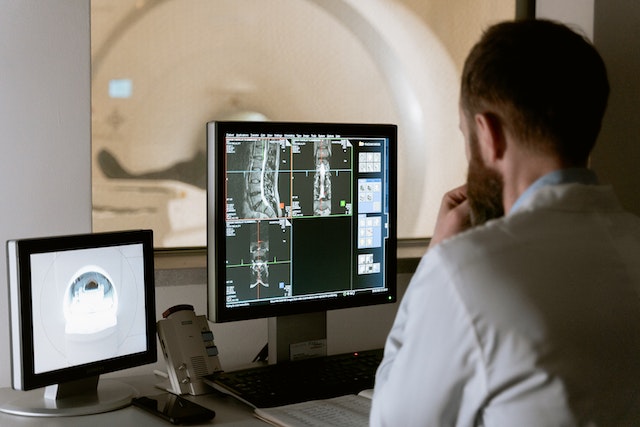Introduction
Ancient civilizations have left behind incredible stories, architectural marvels, and cultural advancements that still influence the modern world. From the mystical pyramids of Egypt to the grand cities of Mesopotamia, ancient history offers a fascinating glimpse into human development.
Understanding how early societies lived, ruled, and innovated allows us to appreciate our shared past and learn valuable lessons. Whether you’re a student, history enthusiast, or traveler, exploring ancient civilizations is both exciting and educational. But what are the best ways to dive into ancient history?
This guide will explore effective ways to learn about ancient civilizations, from books and documentaries to immersive museum visits and digital tools.
Why Learn About Ancient Civilizations?
Studying ancient civilizations helps us understand the roots of modern society. Many aspects of contemporary culture—government, architecture, engineering, and even language—trace their origins to these early societies.
Key reasons to learn about ancient history include:
- Understanding Human Progress – Learn how societies evolved over time.
- Appreciating Cultural Heritage – Explore the traditions and customs of early civilizations.
- Gaining Historical Perspective – Recognize patterns in history to better understand today’s world.
- Inspiring Innovation – Ancient engineering and problem-solving techniques continue to influence modern technology.
Now, let’s explore the best ways to study and experience ancient civilizations.
Best Ways to Explore and Understand Ancient Civilizations
1. Read Books and Historical Texts
One of the best ways to learn about ancient history is by reading books and historical texts. Books provide well-researched information, giving you a clear picture of how ancient civilizations lived, governed, and developed their cultures. Historians and archaeologists have spent years studying and documenting discoveries that help us understand the past.
Recommended Books on Ancient Civilizations:
- Guns, Germs, and Steel by Jared Diamond – Explores how geography influenced the development of human societies.
- A History of the Ancient World by Chester G. Starr – Provides an in-depth overview of early civilizations and their impact.
- The Histories by Herodotus – One of the oldest historical records detailing ancient events and cultures.
- SPQR: A History of Ancient Rome by Mary Beard – A fascinating account of the rise and fall of the Roman Empire.
- The Persian Empire by Lindsay Allen – Discusses the history and significance of one of the most powerful empires in history.
Ancient texts, such as Egyptian hieroglyphs, Greek mythology, and Roman philosophy, also provide deeper insights into the traditions, beliefs, and daily lives of early civilizations. They help us understand how people viewed the world and how their cultures shaped modern societies.
2. Watch Documentaries and Historical Series

Documentaries make history engaging by using visual storytelling, expert interviews, and recreations of ancient events. Watching history come to life through real artifacts and ancient ruins allows you to immerse yourself in the past without leaving your home.
Top History Documentaries to Watch:
- The Story of Egypt (BBC) – A deep dive into the history of Egyptian civilization and its evolution.
- Rome: Rise and Fall of an Empire – Chronicles key moments in the rise and decline of the Roman Empire.
- Ancient Civilizations (Gaia) – Explores lost civilizations and how their achievements still impact modern culture.
- The Greeks: Crucible of Civilization – A fascinating look at how Greek innovations influenced democracy, philosophy, and art.
- The Lost Pyramids of Egypt – Provides insights into recently discovered ancient pyramids and their significance.
You can find these and more on platforms like Netflix, National Geographic, BBC History, and the History Channel.
3. Visit Museums and Historical Sites
Museums and historical sites provide a unique way to see artifacts and structures from ancient civilizations. Walking through museum exhibits or visiting ruins helps you connect with history in a more personal way.
Best Museums to Visit for Ancient Artifacts:
- The British Museum (London) – Home to the Rosetta Stone and Egyptian mummies.
- The Louvre (Paris) – Showcases Greek, Roman, and Mesopotamian artifacts.
- The Egyptian Museum (Cairo) – Houses treasures from King Tutankhamun’s tomb.
- The Metropolitan Museum of Art (New York) – Features artifacts from many ancient cultures.
- The Acropolis Museum (Athens) – Displays Greek sculptures and relics from the Parthenon.
For a more immersive experience, visit famous ancient ruins like Machu Picchu, the Colosseum, Petra, or the Great Wall of China. These places allow you to walk through history and experience the grandeur of ancient engineering and culture firsthand.
4. Enroll in Online Courses and Virtual Tours
Technology has made learning history more accessible than ever. Many online platforms offer free and paid courses covering topics like ancient Egypt, Greece, Rome, and Mesopotamia.
Best Online Platforms for Learning History:
- Coursera – Offers university-level courses on ancient civilizations and archaeology.
- edX – Features history courses from top institutions like Harvard and Oxford.
- Khan Academy – Provides free world history lessons in an easy-to-understand format.
- FutureLearn – Offers interactive history courses with expert guidance.
Additionally, many museums and historical sites provide virtual tours, allowing you to explore famous landmarks like Pompeii, the Parthenon, and the Great Pyramid of Giza from home. Virtual reality experiences make it possible to walk through ancient cities and see how they looked centuries ago.
5. Participate in Archaeological Digs and Hands-On Experiences
For those who love hands-on learning, participating in an archaeological dig or a historical workshop is a great way to interact with history. These activities give you a chance to uncover real artifacts, learn ancient skills, and gain a better understanding of past civilizations.
Ways to Experience History Firsthand:
- Join an archaeological dig through universities or organizations like the Archaeological Institute of America (AIA).
- Attend historical workshops, such as ancient pottery-making, stone carving, or traditional cooking.
- Visit interactive history parks where you can participate in reenactments of daily life in ancient times.
- Explore historical festivals that showcase ancient military strategies, cultural traditions, and craftsmanship.
By engaging in hands-on activities, you develop a deeper appreciation for ancient history and how early humans lived and worked.
6. Listen to History Podcasts and Audiobooks

Podcasts and audiobooks make it easy to learn history while doing other activities, such as commuting, exercising, or cooking. Many history podcasts include storytelling, expert discussions, and well-researched accounts of ancient civilizations.
Recommended History Podcasts:
- The History of Rome – Covers the rise and fall of the Roman Empire in a detailed yet engaging manner.
- Ancient History Fangirl – A fun and informative podcast that explores lesser-known stories from ancient times.
- The British Museum Podcast – Offers insights from museum curators on historical artifacts.
- Hardcore History – Delves deep into significant historical events with dramatic storytelling.
For those who prefer audiobooks, platforms like Audible, Google Books, and Apple Podcasts offer thousands of history books narrated by experts. These options allow you to learn while on the go or during your downtime.
Table: Best Ways to Learn About Ancient Civilizations
| Method | Benefits |
|---|---|
| Reading Books & Texts | Provides in-depth historical insights. |
| Watching Documentaries | Visual storytelling makes history engaging. |
| Visiting Museums | Offers direct access to real artifacts. |
| Online Courses | Learn from top universities and historians. |
| Archaeological Digs | Hands-on experience with historical findings. |
| Listening to Podcasts | Convenient way to absorb historical knowledge. |
Conclusion
Learning about ancient civilizations is a fascinating journey that connects us to the past and enriches our understanding of the present. Whether you prefer reading books, watching documentaries, visiting museums, or participating in hands-on experiences, there are countless ways to immerse yourself in history.
With the help of technology, online courses, virtual tours, and podcasts have made history more accessible, allowing anyone to explore the rich stories of ancient cultures from anywhere in the world.
Key Takeaways:
- Reading books and watching documentaries provide a strong foundation in ancient history.
- Visiting museums and archaeological sites offers tangible connections to ancient civilizations.
- Online courses, podcasts, and virtual tours make learning history more accessible and engaging.
- Hands-on experiences like archaeological digs and workshops bring history to life in an interactive way.
By exploring ancient civilizations through these methods, you can develop a deeper appreciation for history and its impact on modern society.











